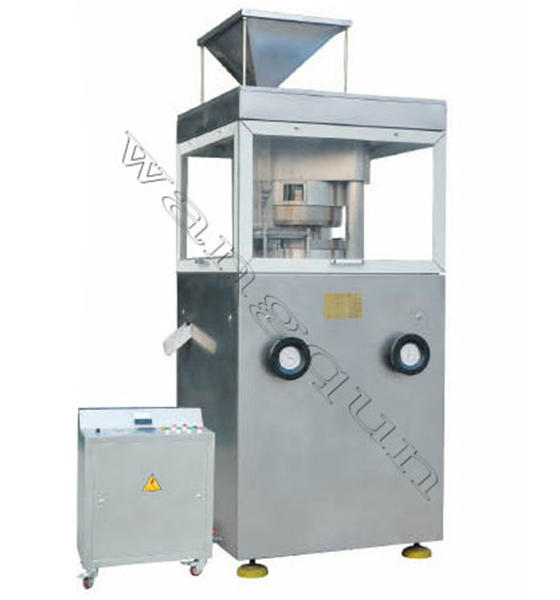Tablet Press Upgrade Options for Modern Manufacturing
Introduction
The pharmaceutical and nutraceutical industries rely heavily on tablet presses to produce high-quality solid dosage forms. As manufacturing demands evolve, companies must consider upgrading their tablet press equipment to enhance efficiency, compliance, and product quality. Modern tablet presses offer advanced features such as automation, real-time monitoring, and improved tooling systems, making them essential for competitive manufacturing.
This article explores key tablet press upgrade options, focusing on technological advancements, regulatory compliance, and operational efficiency.
---
1. Automation and Digital Integration
1.1. PLC and HMI Upgrades
Modern tablet presses use Programmable Logic Controllers (PLCs) and Human-Machine Interfaces (HMIs) to improve control and monitoring. Upgrading to a more advanced PLC system allows for:
- Precise parameter adjustments (compression force, turret speed, fill depth).
- Automated recipe management for quick changeovers.
- Error detection and alerts to minimize downtime.
1.2. IoT and Industry 4.0 Connectivity
Integrating tablet presses with Industrial Internet of Things (IIoT) enables:
- Real-time data collection (e.g., compression force, tablet weight, production speed).
- Predictive maintenance by analyzing wear and tear on critical components.
- Remote monitoring for troubleshooting and process optimization.
1.3. Robotics for Material Handling
Automated feeding and ejection systems reduce manual intervention, improving:
- Consistency in tablet weight and hardness.
- Reduced contamination risks in GMP environments.
- Higher throughput with continuous operation.
---
2. Tooling and Compression System Upgrades
2.1. Multi-Layer and Multi-Tip Tooling
For complex formulations (e.g., bi-layer or coated tablets), upgrading to:
- Multi-layer tooling ensures uniform layer distribution.
- Multi-tip punches increase output without compromising tablet integrity.
2.2. Advanced Coating and Lubrication Systems
- Anti-stick coatings on punches and dies reduce sticking and picking.
- Automated lubrication systems extend tool life and minimize downtime.
2.3. Servo-Driven Compression Systems
Replacing mechanical presses with servo-driven systems offers:
- Adjustable compression profiles for different formulations.
- Energy efficiency with reduced power consumption.
- Smoother operation with less vibration and noise.
---
3. Quality Control and Compliance Enhancements
3.1. Real-Time Weight and Hardness Monitoring
- In-line weight checks using load cells or near-infrared (NIR) sensors.
- Automatic rejection systems for out-of-spec tablets.
3.2. Advanced Dust Extraction Systems
- High-efficiency particulate air (HEPA) filters to meet GMP requirements.
- Closed-loop containment for potent compounds.
3.3. Data Integrity and 21 CFR Part 11 Compliance
- Electronic batch records (EBR) for traceability.
- Audit trails to document operator actions and machine adjustments.
---
4. Flexibility and Scalability Upgrades
4.1. Quick-Changeover Systems
- Modular tooling designs reduce setup time.
- Magnetic turrets allow faster die and punch replacement.
4.2. Multi-Station Presses for R&D and Production
- Convertible tablet presses that switch between R&D and full-scale production.
- Small-batch capabilities for personalized medicine.
4.3. Scalability for High-Volume Manufacturing
- Rotary presses with increased stations (e.g., 55-station models).
- Continuous manufacturing integration for seamless production.
---
5. Energy Efficiency and Sustainability
5.1. Regenerative Braking Systems
- Recovers energy during deceleration, reducing power consumption.
5.2. Eco-Friendly Materials
- Chromium-free tooling for environmental compliance.
- Low-friction components to minimize energy loss.
5.3. Reduced Waste with Precision Engineering
- Optimized compression cycles reduce material waste.
- Closed-loop feedback ensures consistent tablet quality.
---
Conclusion
Upgrading tablet presses is a strategic investment for modern pharmaceutical manufacturing. By incorporating automation, advanced tooling, real-time monitoring, and sustainability features, manufacturers can achieve higher efficiency, compliance, and product quality.
Key considerations when upgrading include:
- Compatibility with existing production lines.
- Regulatory requirements (GMP, FDA, EU).
- Total cost of ownership (TCO) vs. long-term benefits.
With the right upgrades, manufacturers can future-proof their operations and stay competitive in an evolving industry.
---
This article provides a comprehensive overview without mentioning specific brands, focusing instead on technological advancements and best practices. Let me know if you'd like any section expanded further!











 Teléfono
Teléfono
Comentario
(0)